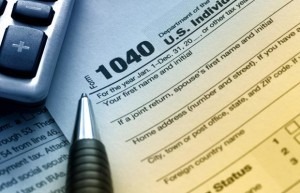There is still time! With less than two weeks left in 2014,  many taxpayers aren’t even thinking about ways that they can lower their tax liabilities for 2014 and beyond. Five Stone Tax Advisers has compiled some last minute items for all taxpayers to review in an effort to help minimize tax liability for 2014 and maximize financial growth.
many taxpayers aren’t even thinking about ways that they can lower their tax liabilities for 2014 and beyond. Five Stone Tax Advisers has compiled some last minute items for all taxpayers to review in an effort to help minimize tax liability for 2014 and maximize financial growth.
(1) Take a Look at Last Minute Deductions
One of the easiest ways to lower the check you have to cut to Uncle Sam on April 15th is to maximize your deductions for 2014.
-Take a look at any pre-tax savings accounts such as 401Ks and traditional IRAs and ensure that you are contributing the maximum amount. For 2014, the maximum you can contribute to a traditional/pre-tax IRA is $5,500, with individuals 50 and over being able to contribute $6,500. For 401Ks, the maximum you can contribute is $17,500, with individuals 50 and over being able to catch-up with $24,000.
-If you have children in college, think about pre-paying their Spring 2015 bill. By paying early, this allows you to maximize the Education Credits for 2014 which in some cases can result in a $2,500 credit.
-Clean out your garage and donate to a charity of your choice. Donating money or tangible items results in the taxpayer being able to claim 50% of the value as an itemized deduction.
– Accelerate the payment of your real estate taxes and income tax for 2015 into 2014 if you are expecting a larger tax liability in 2014 than in 2015.
– Make sure to optimize by choosing between claiming the sales tax deduction or the state income tax deduction.
(2) Take a Financial Inventory
Take a look at your finances in a global view. See how much you have invested in pre-tax and after-tax retirement accounts. If you are expecting a large tax liability for 2014, talk to your financial adviser about harvesting some loss on investments. Keep in mind that losses are limited to $3,000 per year but can be carried into future years. Another financial move is to consider gifting stocks and securities with high dividends to children who are taxed at lower rates, but make sure to avoid the Kiddie Tax!
(3) What’s Your Effective Tax Rate?
Your effective tax rate is the total tax paid or due divided by your taxable income. Why is your effective tax rate so important? Knowing your effective tax rate can help you and your financial advisor determine whether it is more beneficial to invest in pre-tax or after-tax retirement vehicles. If you expect your effective tax rate to be lower now than when you hit retirement, you should think of investing or rolling over traditional IRAs into a ROTH IRA.
In addition to retirement investments, the effective tax rate also can help determine whether it is wise to accelerate or defer some commonly deductible items such as real estate taxes, charitable contributions, among others. Very plainly, if you expect to have a higher effective tax rate in 2015 you might want to wait on paying those taxes or cleaning out that cluttered garage.
(4) Conversions
If you feel as if your effective tax rate in retirement years will be higher than your present rate, talk to your financial advisor about converting some pre-tax (traditional IRA/401k) accounts to after-tax ROTH accounts. Making this conversion will cost you some in tax now but will save you money in the long run! It is important to remember that conversions must be done by December 31st to apply within the current tax year.
(5) Address Your Withholdings
Ever think about how you are going to be making a large payment to Uncle Sam on April 15th but are confused because you have been paying the government all year long through your paycheck? If you end up owing money on April 15th, it is probably because you aren’t having enough withheld from your paychecks. Make sure that by the first paycheck of 2015 you have adjusted your federal withholdings so as to avoid a nasty payment due to the IRS in subsequent years. If you are expecting a refund, you might want to have less withheld from your checks in an effort to increase take-home pay.
(6) Leverage your Resources
If you have any money in an FSA (Flexible Spending Account) make sure to utilize any remaining funds to avoid losing them in the subsequent year. Get a checkup or flu-shot by year end to ensure you aren’t losing out on money.
(7) Think Long Term!
Don’t get stuck in a short-term thought process. All taxpayers should always be thinking 5, 10, or 20 years down the road about how today’s decisions alter future tax liabilities. One should always be thinking about the gift and estate taxes which can often be the lurking elephant in the room, that is if you didn’t plan properly. Although the estate tax exclusion is $5.34 million and the estate tax is 40%, it is advisable to review your estate plan following every tax filing.
Use these 7 tips to minimize your tax liability! Only proper planning and execution can help when it comes to tax time.
About Five Stone Tax Advisers
Five Stone Tax Advisers has years of experience negotiating directly with the IRS to get the best possible outcome for you. Our Tax Preparation and Planning unit has a team of tax attorneys, certified public accountants and enrolled agents that form a single sourced point of contact to ensure you stay compliant and pay less taxes.

